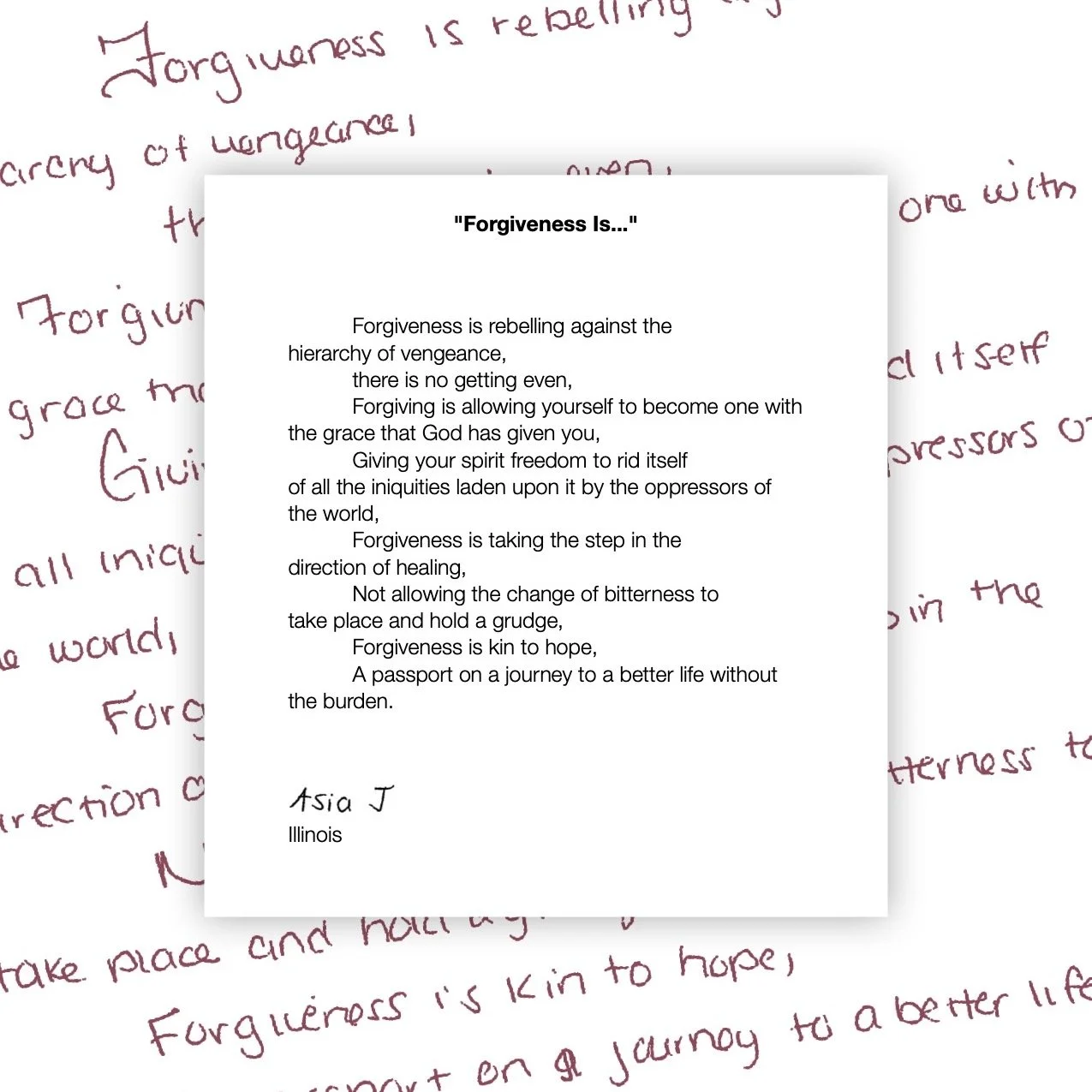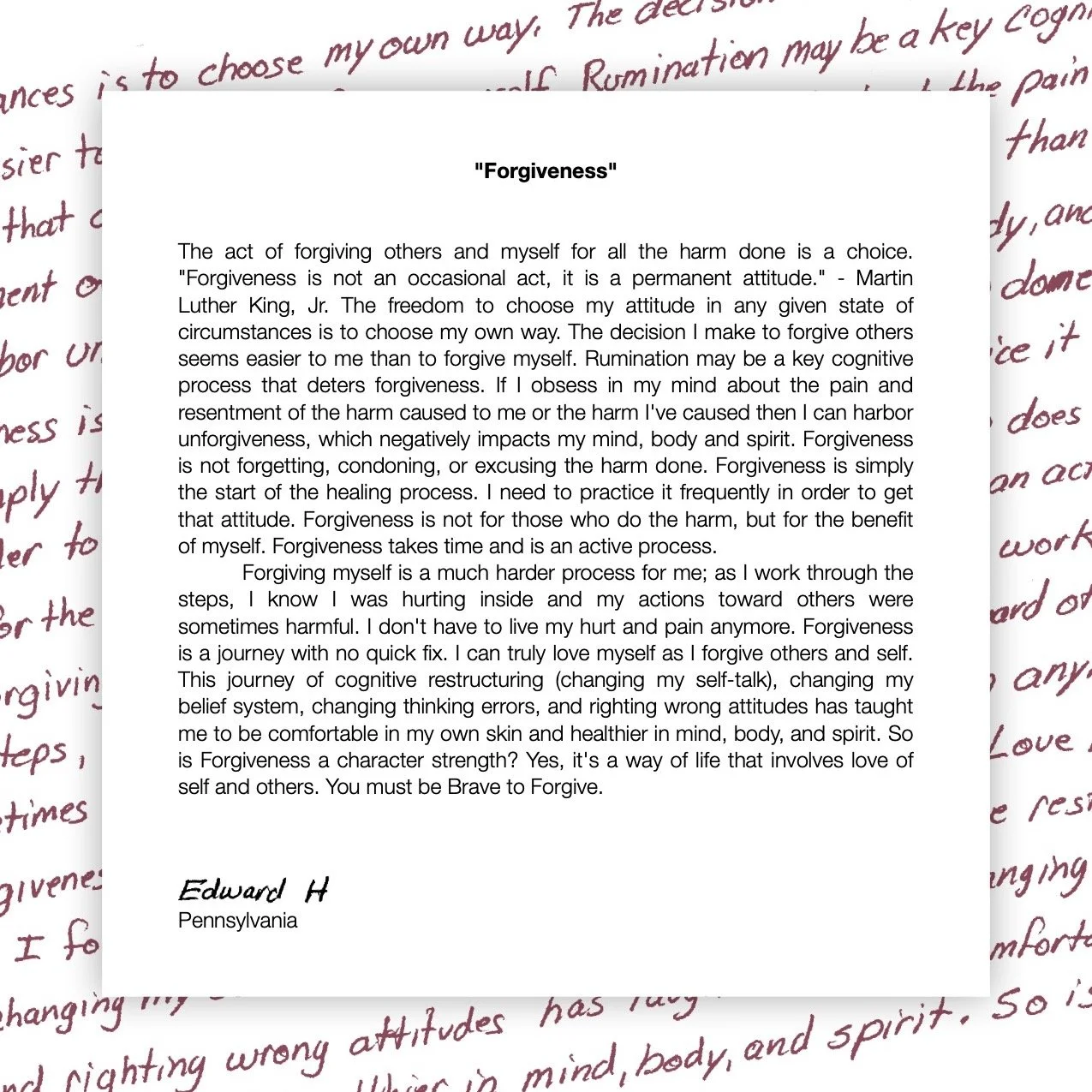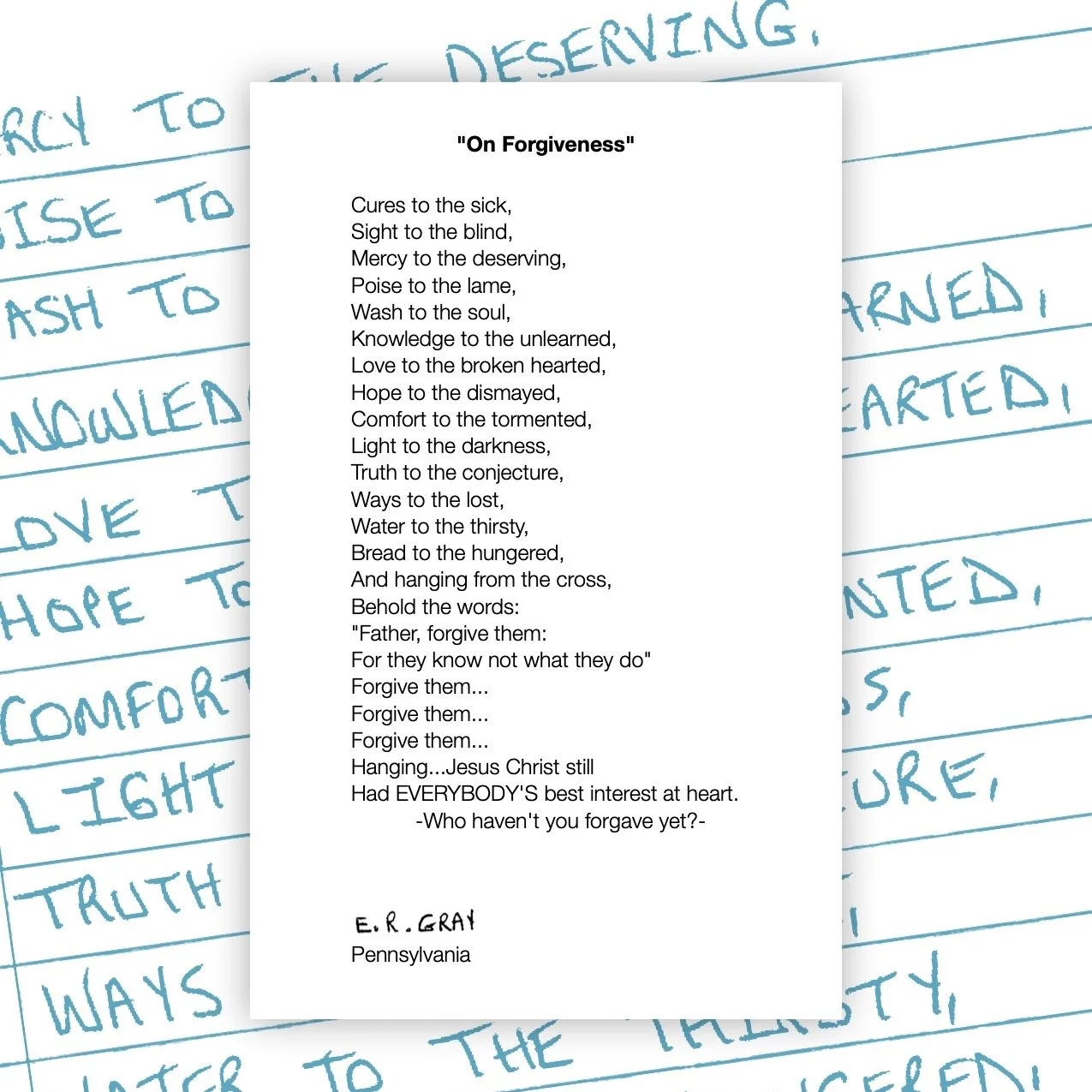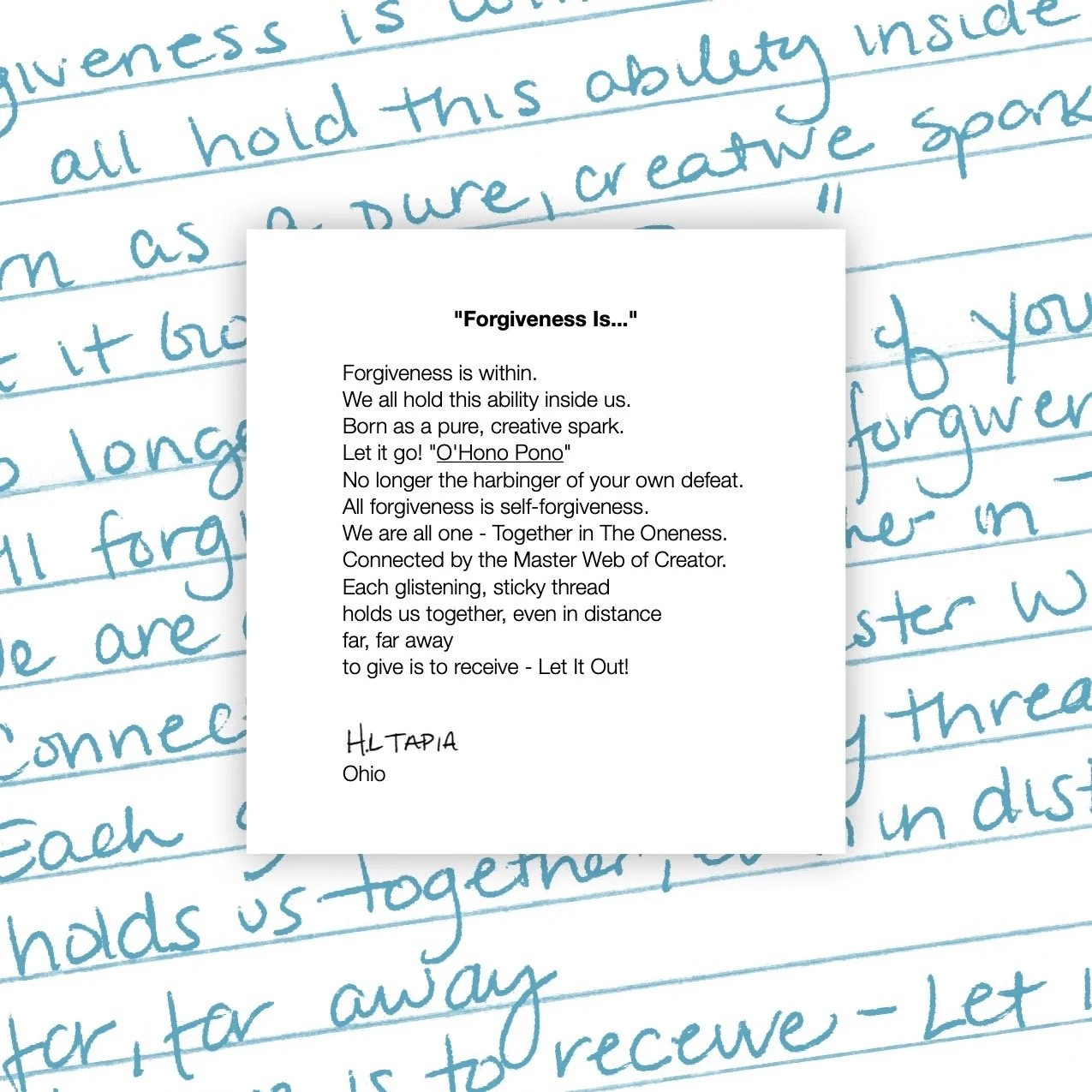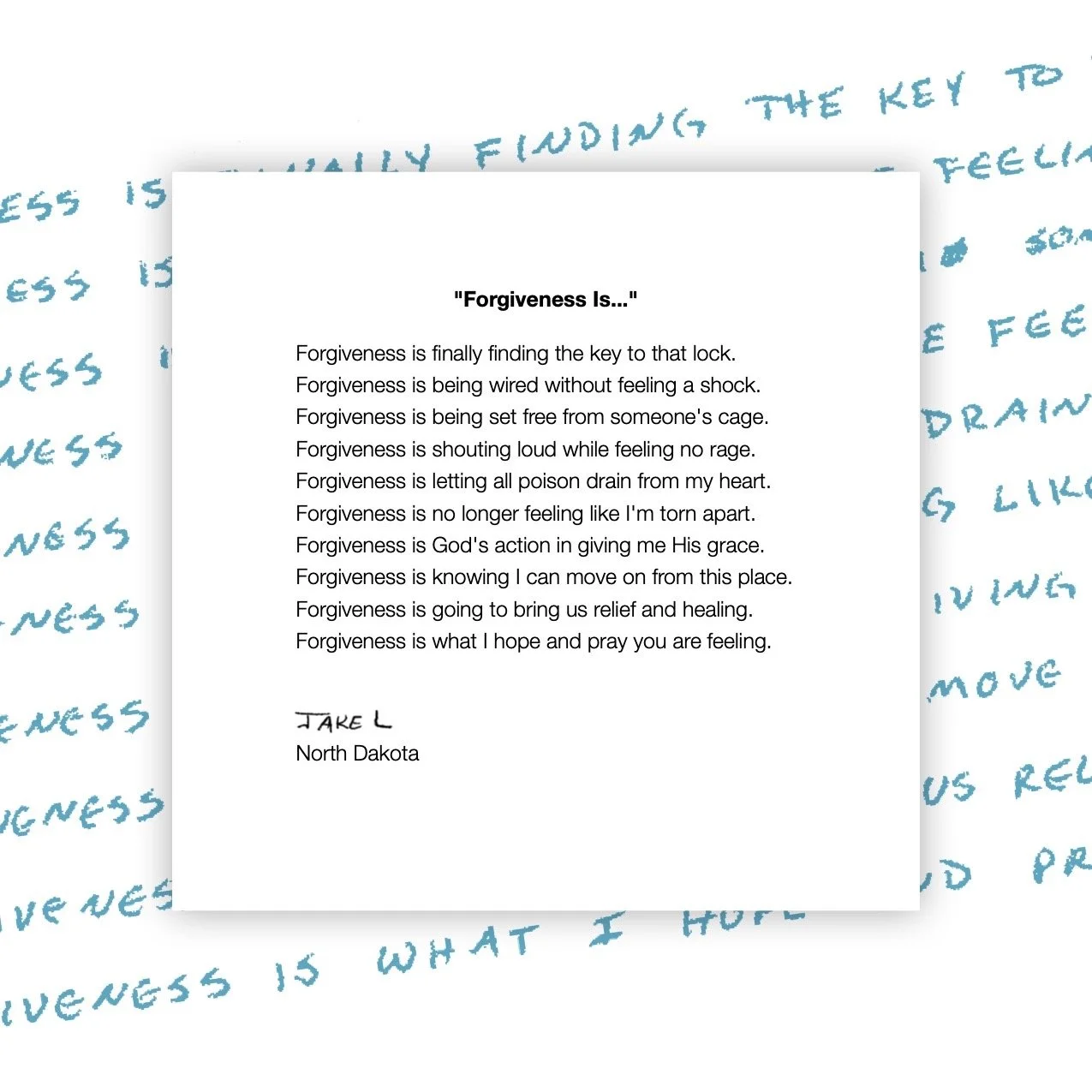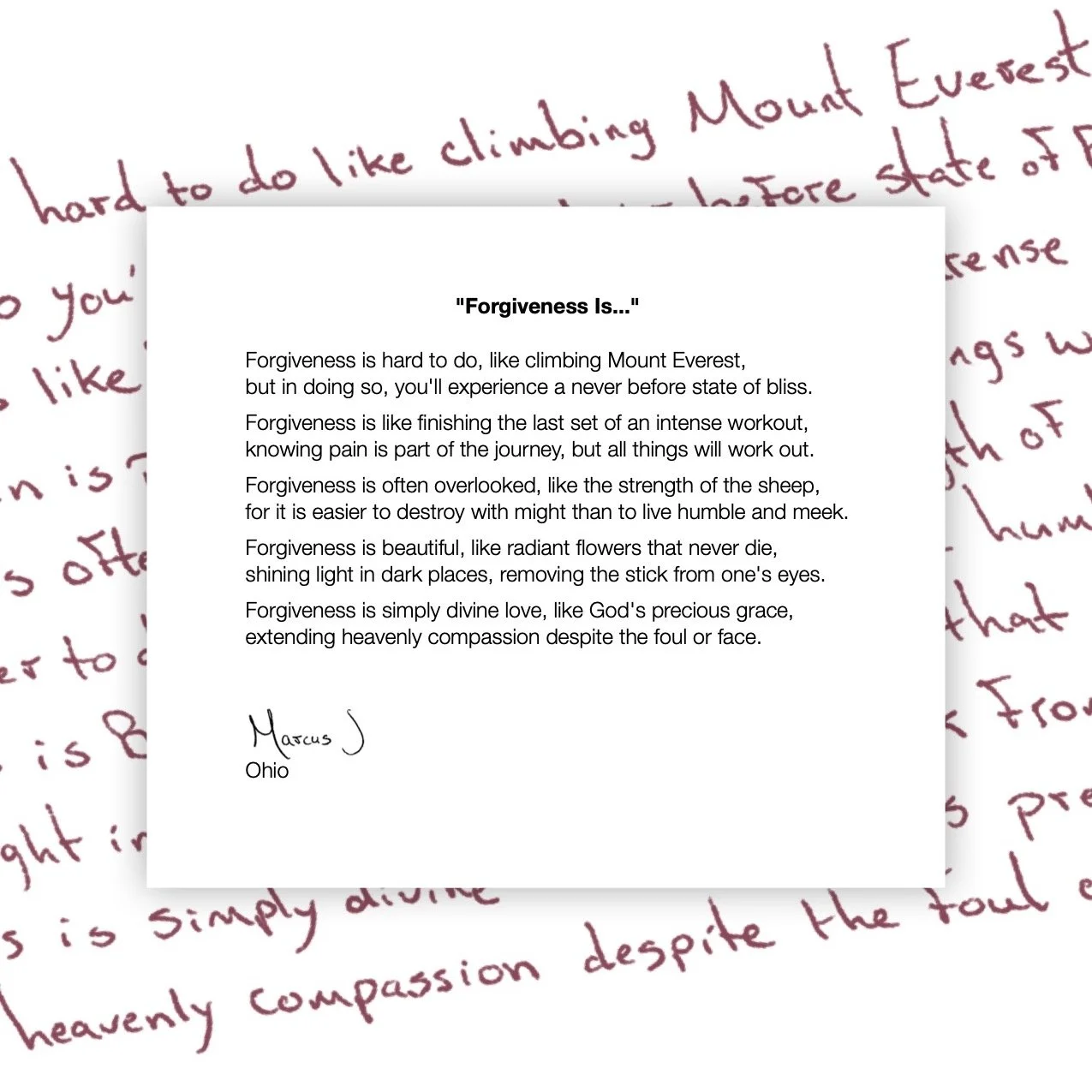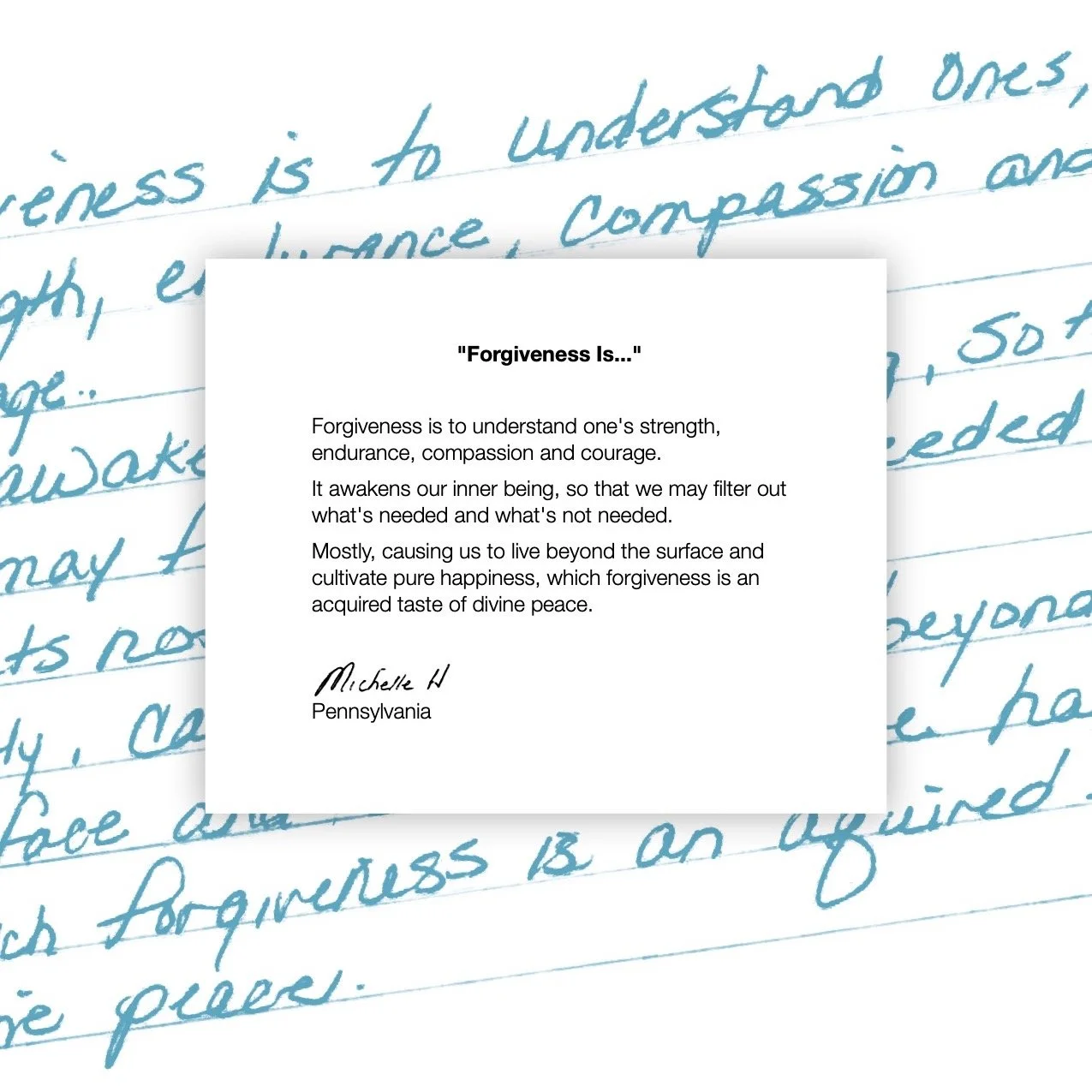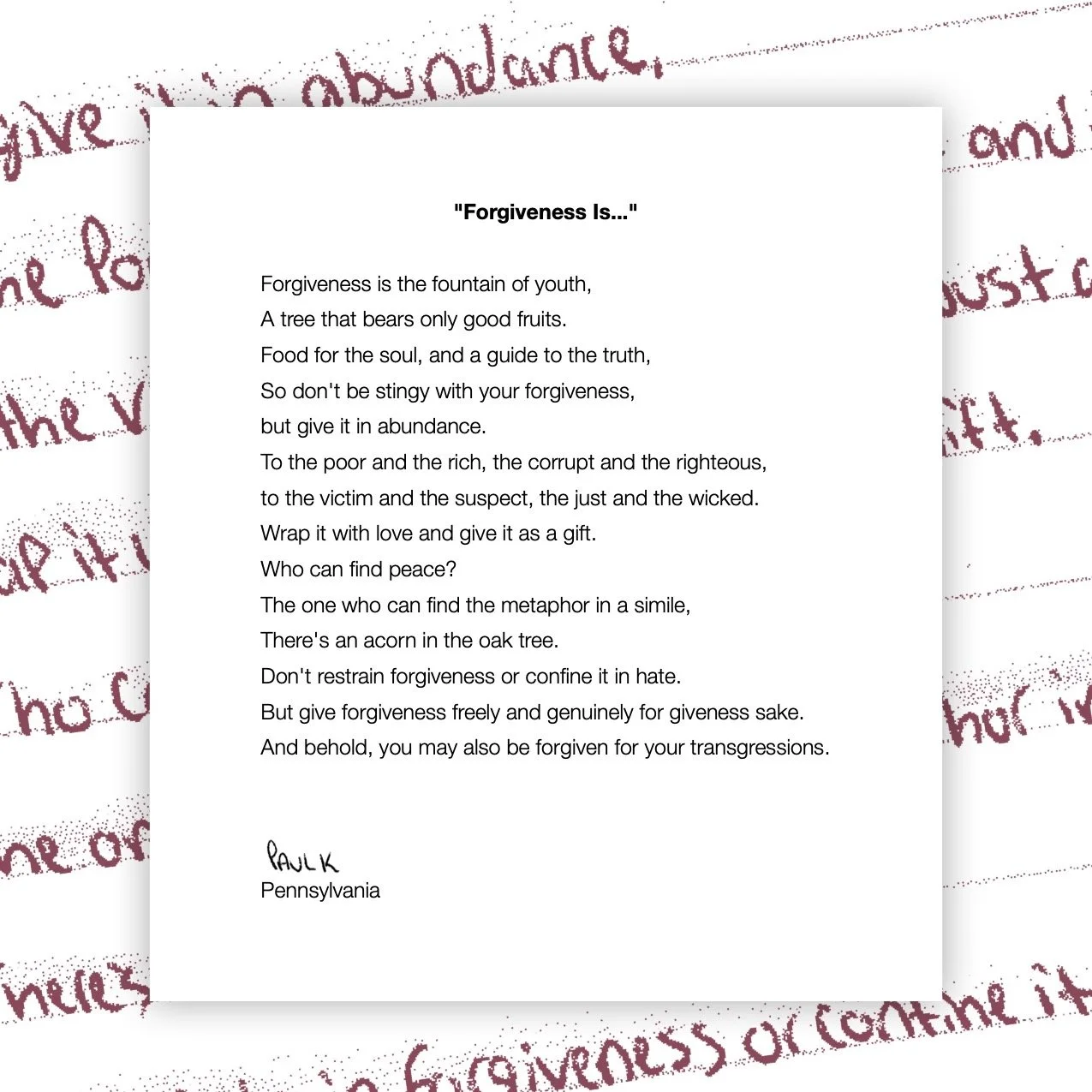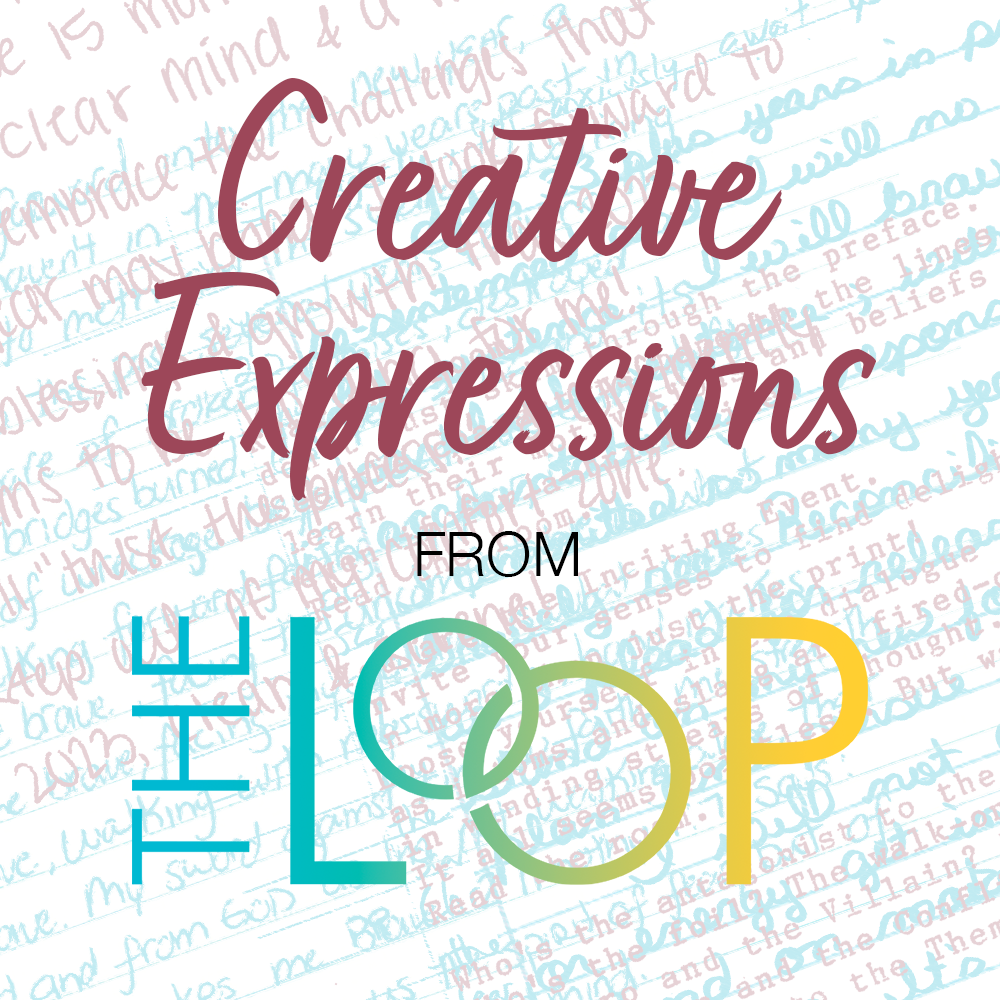
“Forgiveness Is…”
WRITING PROMPT:
In The Loop - Issue 2 - 2023, we explored different ways the character strength of Forgiveness is often used, in prison and/or out in society. As a way to creatively reflect on this even further, we invited readers to write a short poem or essay inspired by the line, "Forgiveness is..." The following episodes include a variety of unique, brave, and honest responses from peers in prison throughout the US.

-
![]()
Asia J. (IL)
Asia challenges us to rebel against the “hierarchy of vengeance” by choosing to forgive instead of seeking revenge. That’s a powerful challenge, and one we should all think about; what if more of us chose the “rebellious” path of forgiving? Imagine a world in which people have chosen a different journey, one that requires the “passport” of forgiveness and hope. What a world, and a journey, that would be!
-
![]()
Camilia (OH)
“Forgiveness,” Camilia writes, “is my bravery.” What a direct, and perfect, statement about the courage that true forgiveness requires! She has come to recognize that she “deserved to be loved and receive love,” even when she was told the opposite. She has reached that recognition by becoming able to forgive “myself for what I didn’t know,” and also to forgive others who hurt her for what they didn’t know. That’s some powerful recognition and knowledge, and she’s putting it to good use.
-
![]()
Edward H. (PA)
Ed believes that “You must be brave to forgive.” He describes the process of getting to true forgiveness as one of “cognitive restructuring (changing my self-talk), changing my belief system, changing thinking errors, and righting wrong attitudes.” This can be a long, slow, and difficult process—but Ed clearly finds it worthwhile. It’s allowed him to be “comfortable in my own skin and healthier in mind, body, and spirit.”
-
![]()
E.R. Gray (PA)
E.R.’s poem “On Forgiveness” provides a long list of gifts that many of us wish we could bring to the world: “cures to the sick / . . . love to the broken-hearted / . . . comfort to the tormented / . . . “ and more. From there, he brings us to an image of Jesus on the cross, saying the famous words of ultimate forgiveness: “Father, forgive them, for they know not what they do.” Even while hanging on the cross, E.R. writes, “Jesus Christ still / had EVERYBODY’S best interest at heart.”
-
![]()
Gary F. (SC)
Gary’s poem is rich with similes (“grudges absorb your creativity / like a thirsty sponge”) and metaphors (guilt as “a blanket of turmoil and self-hate”). He offers us another reason to be forgiving: because doing the opposite—that is, holding on to grudges—robs us of our creativity and our “positive energy.”
-
![]()
H.L. Tapia (OH)
In including the words “O Hono Pono” in her poem, H.L. is drawing on a traditional Hawaiian practice of forgiveness and reconciliation. In keeping with this practice, she writes that “All forgiveness is self-forgiveness,” and “We are all one — together in the oneness.” Her poem concludes with beautiful images of a web of connection that holds us all together.
-
![]()
Jake L. (ND)
There is so much joy in Jake’s “Forgiveness Is” poem! He presents forgiveness as an action that leads to “being wired without feeling a shock” and “shouting loud while feeling no rage.” The poem’s rhymes reinforce this joyfulness at experiencing the “relief and healing” that forgiveness brings, and he ends his poem with a generous wish for his reader: “Forgiveness is what I hope and pray you are feeling.”
-
![]()
Kaisha R. (OH)
The similes in Kaisha’s sweet and positive poem are beautiful. She presents forgiveness as something that’s “gentle, / like the wind in the trees,” and the lack of forgiveness as “like a boulder.” Then she tops it off with a metaphor for forgiveness, writing that it “takes the weight off your shoulders.” This is a much-needed reminder that forgiveness—both giving and receiving it—can be a way back to “sanity,” to the quiet peace of letting blame and bitterness go.
-
![]()
Marcus J. (OH)
Marcus reminds us that we’re often willing to push ourselves hard physically—in a workout, for instance. He goes on to say that we need to bring that same level of intensity and commitment to the act of forgiveness. It will be hard, “like climbing like Mount Everest.” But, he says, forgiving will bring us to the experience of “a never before state of bliss.”
-
![]()
Michelle H. (PA)
Forgiveness, Michelle writes, is “an acquired taste of divine peace.” An “acquired taste” is often something we don’t like at first—maybe something like coffee, or seafood, or something else that tastes strange to us the first time we try it. As Michelle and other writers have noted here, it takes work, and time, to develop the “strength, endurance, compassion, and courage” that are present in a forgiving heart. But it’s work that is well-rewarded, allowing us to “live beyond the surface and cultivate pure happiness.”
-
![]()
Paul K. (PA)
Paul’s poem reminds us that true forgiveness isn’t just offered in situations that are easy. Sure, we want to forgive “the righteous,” “the victim,” and “the just.” But what about “the rich” and “the corrupt” and “the wicked”? For everyone, Paul writes—the wicked and the just alike—we should offer our forgiveness as a gift. This is a gift that we’re all capable of giving—but that doesn’t mean it will be easy.


